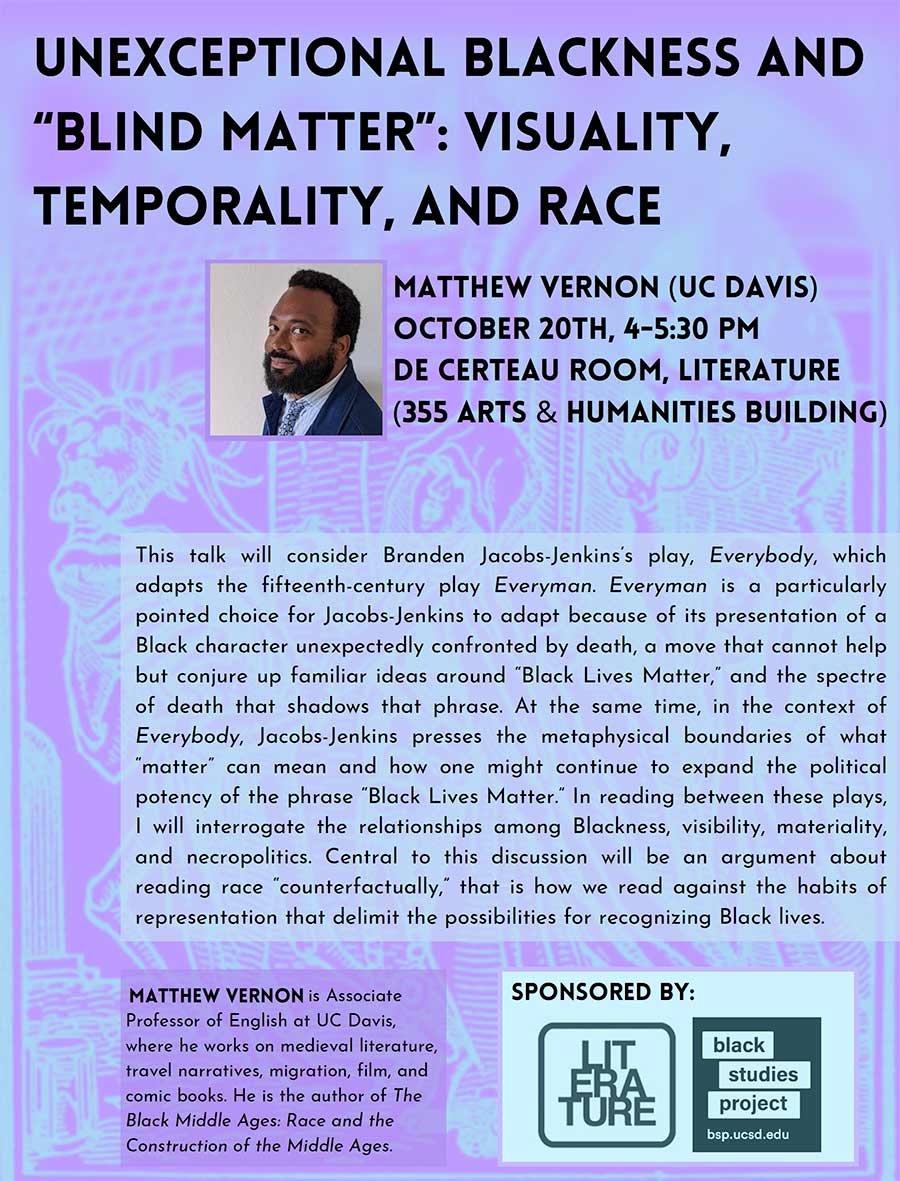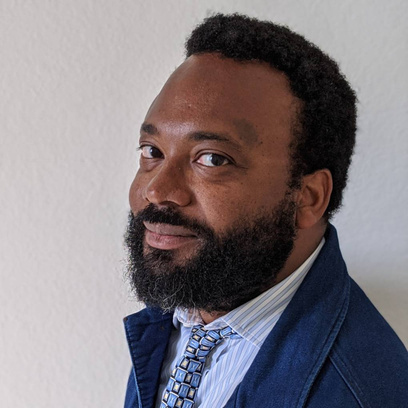Unexceptional Blackness and “Blind Matter”: Visuality, Temporality, and Race
Matthew Vernon is Associate Professor of English at UC Davis, where he works on medieval literature, travel narratives, migration, film, and comic books. He is the author of The Black Middle Ages: Race and the Construction of the Middle Ages.
October 20th, 2022 | 4 PM-5:30 PM (PST)
De Certeau Room, Literature
(355 Arts & Humanities Building)

Event Details

This talk will consider Branden Jacobs-Jenkins’s play, Everybody, which adapts the fifteenth-century play Everyman. Everyman is a particularly pointed choice for Jacobs-Jenkins to adapt because of its presentation of a Black character unexpectedly confronted by death, a move that cannot help but conjure up familiar ideas around “Black Lives Matter,” and the spectre of death that shadows that phrase. At the same time, in the context of Everybody, Jacobs-Jenkins presses the metaphysical boundaries of what “matter” can mean and how one might continue to expand the political potency of the phrase “Black Lives Matter.” In reading between these plays, I will interrogate the relationships among Blackness, visibility, materiality, and necropolitics. Central to this discussion will be an argument about reading race “counterfactually,” that is how we read against the habits of representation that delimit the possibilities for recognizing Black lives.
Matthew Vernon is Associate Professor of English at UC Davis, where he works on medieval literature, travel narratives, migration, film, and comic books. He is the author of The Black Middle Ages: Race and the Construction of the Middle Ages.
"Show Notes"
The following are some text and references from Professor Matthew Vernon's presentation:
- The work of artist Ken Gonzalez-Day - Professor Vernon serendipitously juxtaposed for the audience a piece from Gonzalez-Day's Erased Lynching Series ("East First Street #1") with a photograph featuring the frontal gaze of the dog owner from the Central Park bird watching incident.
- Professor of African American Studies Hazel V. Carby's 2009 essay Becoming Modern Racialized Subjects: Detours through Our Past to Produce Ourselves Anew.
- V.A. Kolve's "Everyman and the Parable of the Talents," from the 1972 text Medieval English Drama: Essays Critical and Contextual (note: Everyman is the fifteenth century play from which Branden Jacobs-Jenkin's play Everybody is adapted).
- Christina Sharpe's text In the Wake: On Blackness and Being (2016).
- Sidney W. Mintz's Sweetness and Power: The Place of Sugar in Modern History (1985) and artist Kara Walker's 2014 sculpture and installation at the Williamsburg Domino Sugar Factory.
- Kodwo Eshun's work on Afrofuturism; for one such exposition, see Eshun's essay Further Considerations on Afrofuturism (2003).
- Eve Sedgwick's chapter "Paranoid Reading and Reparative Reading, or, You're So Paranoid, You Probably Think this Essay is About You," from her 2003 text Touching Feeling: Affect, Pedagogy, Performativity.
